Fighting the Patriarchy in Mother Russia
Russia’s beleaguered anti-war movement is led by feminists who understand foreign policy as an extension of gender politics.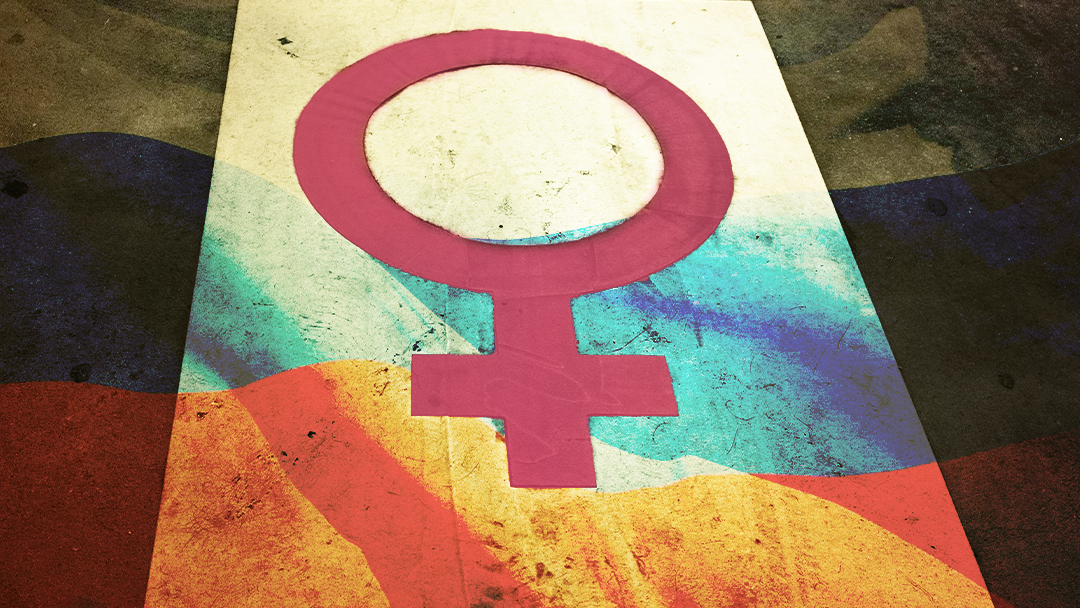 Image by Truthdig.
Image by Truthdig.
Russia is going to ban feminism. It sounds strange — banning an idea — but a group of prominent Russian lawmakers is writing legislation to outlaw any expression of what Oleg Matveichev, deputy chairman of the Duma’s Information Policy Committee, calls the “extremist ideology.” If passed, the promotion of “feminist” ideas, as determined by a pro-government panel of experts, will be punishable by up to five years in prison. Books such as “The Vagina Monologues” and “The Second Sex” will join a list of prohibited titles that includes “Mein Kampf.”
Meanwhile, homegrown feminist organizations are being officially classified as tools of enemy states. In December of 2022, the Ministry of Justice designated the group Feminist Antiwar Resistance (FAR) a “foreign agent,” without presenting proof of ties to any foreign government. But in today’s Russia, no evidence is needed; it is enough that groups advocate ideas deemed alien or antagonistic to the official narrative.
FAR represents not one such idea, but two. As the organizational backbone of Russia’s suppressed and disorganized anti-war movement, it has entwined the fights for gender equality and peace in a way that has enraged and unnerved the Kremlin.
If passed, the promotion of “feminist” ideas, as determined by a pro-government panel of experts, will be punishable by up to five years in prison.
The group’s online forum emerged as the focal point of anti-war sentiment in Russia within weeks of the war’s outbreak in February of 2022, as women gathered to express dissent and organize protests. At its peak during the first year, the FAR network included roughly 2,000 activists across Russia. Though the group’s Telegram channel remains robust with 38,500 subscribers, emigration has greatly eroded the number of FAR-associated activists inside Russia to about 200.
“Many of those on the Telegram channel are lurkers or living abroad,” says Natalia Kovylaeva, a political scientist at the University of Tartu in Estonia. “We have counted 33 international communities of Russian feminists associated with FAR.”
At least 10 activists now organizing from abroad escaped Russia, on the verge of being imprisoned, with the help of a feminist mutual-aid grid built during the prewar struggle for women’s rights. Of those who stayed, many have paid the price. Women comprise 40% of activist-related arrestees since the war began, a significant spike that reflects an upsurge in female activism as well as the end of prewar policing practices that had largely spared women from jail time and violence. While in police custody, female protesters have been routinely subjected to beatings and torture, such as the shocking case of nine young women beaten at the Brateevo police station in Moscow. Hundreds of other feminist activists have been charged with exorbitant fines and subjected to harassment and surveillance.
“Until the war, the Russian authorities didn’t take feminism seriously,” says Liliya Vezhevatova, a 39-year-old old FAR activist from Siberia now living in Armenia. “The government is experienced in fighting organizations with vertical structures, but feminist networks are completely incomprehensible to it. That’s why we were able to become the anti-war resistance. And that’s why they’re coming after us with these laws.”
* * *
Vezhevatova began organizing as a teenager in Siberia’s anti-fascist movement. She later became the LGBT protests coordinator in the central Russian city of Novosibirsk. When the Duma passed its first anti-LGBT law in 2013, prohibiting “gay propaganda,” she shifted her focus to gender equality issues, such as passing laws to prevent domestic violence. By then, the internet and social media had brought third-wave feminism to Russia, and young women across the country gathered online to discuss long-taboo concerns like harassment and family violence. Natalia Kovylaeva, the social scientist, has identified 98 active social network communities in 45 regions that could be described as feminist, including in conservative republics such as Dagestan.
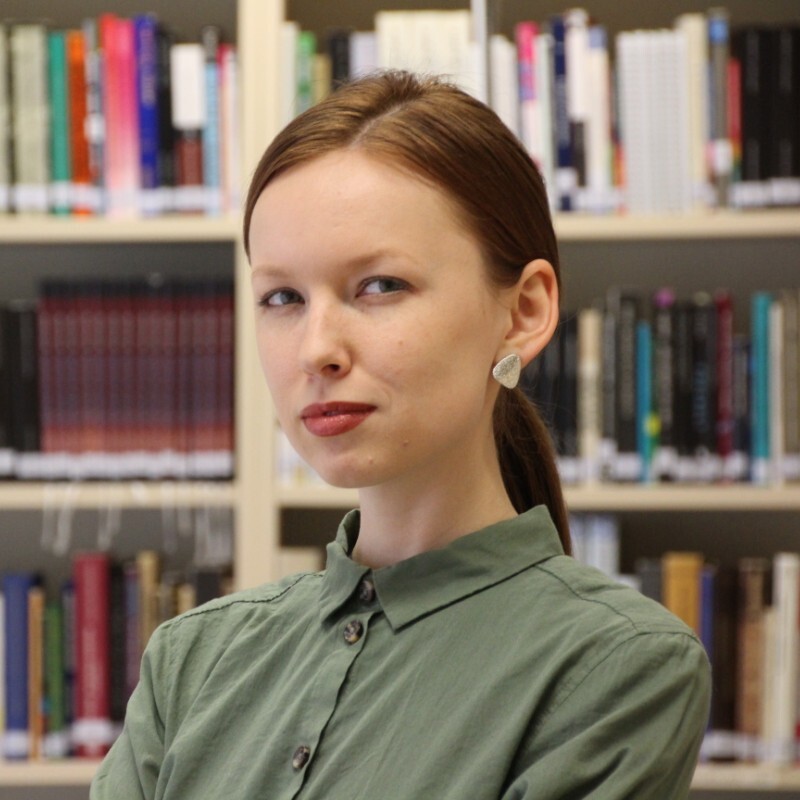
Before the invasion of Ukraine, the Kremlin mostly ignored these networks. That changed in the days and weeks after the war started, as members of feminist online networks began to be featured prominently in protests. During the first 10 weeks of the war, around 15,500 protesters were arrested, including a large number of women and self-identified feminists. Vezhevatova was one of them. Arrested twice during February of 2022, she was forced to flee to Erevan, Armenia, with her girlfriend after learning that the police were fabricating a case to imprison her.
Following the dispersal of street protests and the passage of censorship laws, FAR members pivoted to creative forms of protest that did not involve gathering publicly in groups. They launched a “Mariupol 5000” campaign to draw attention to the first reports of 5,000 civilians killed by Russian shelling in the Ukrainian city. They erected 1,500 crosses in the yards of Russian cities “to remind Russians of the war in their everyday lives.” In August of 2022, three FAR activists added symbolic red dye to one of the largest Moscow military memorial fountains, “Music of Glory” — to symbolize the blood of Ukrainians. (They escaped three-year prison sentences by leaving the country.) FAR continues to plan acts of resistance across the country, often in the form of small and stealthy actions such as placing yellow and blue Easter eggs in front of city churches.
Just as feminist groups gravitated to this anti-war activity, say FAR organizers, opposition to the war has brought many provincial Russian women into contact with feminist ideas.
“In the past, women preferred to ignore issues like the glass ceiling and family violence,”
says Julia Basmanova, a FAR coordinator who left Russia in March 2022 and currently lives abroad. “Now, people who were never part of the feminist discourse are delving deeper into feminism.”
During the first 10 weeks of the war, around 15,500 protesters were arrested, including a large number of women and self-identified feminists.
Basmanova is one of thousands of exiles who support protests within Russia with ideas, campaign materials and legal and psychological aid. Like many within FAR’s veteran leadership, she understands the war in Ukraine as a reflection, and possibly a consequence, of Russia’s high rates and tolerance of domestic violence. This is illustrated by a poster hanging in Vezhevatova’s office. “Everything begins at home,” it reads, with the word “Everything” crossed out and replaced by “The war.
“It is a fundamental idea behind Russian anti-war feminism that any act of violence begets more violence on a larger scale,” Vezhevatova explains. “Domestic violence spreads to the government and eventually to the international community.”
Many FAR activists use the metaphor of domestic violence to explain their opposition to growing international calls for an immediate ceasefire and negotiated settlement. Just as official restrictions on domestic abusers are ineffective, they believe, Ukraine cannot rely on U.N. interventions and peace treaties for protection. The cycle of conflict, they say, is bound to repeat itself once Putin replenishes, trains and equips new troops. He exhibits classic abusive behavior, perceiving peaceful intentions as signs of weakness. In this view, a peace treaty would leave Ukrainians living in occupied territories vulnerable to oppression, just as a woman remains vulnerable to her abusive husband when the policeman leaves the scene of the crime.
Whatever the explanatory power of this metaphor, home-level domestic violence is on the rise across Russia, as psychologically damaged soldiers return from the western front.
“We have been anticipating this rise in abuse since autumn,” says Vezhevatova. “There are more cases of domestic violence and an increase in firearms crimes. These are consequences of the war.”
* * *
More than a year into the Kremlin’s wartime crackdown, what is the profile of the typical FAR supporter in Russia? According to Vezhevatova, the typical female gathered on the FAR forum is around 30 years old, with small children, socially active and educated. “They write to us that it’s unbearable, that they have children and are afraid for their future. Their main motivation is to try to make Russia a better place for their kids,” she says. Basmanova adds that most of the participants in public partisan actions are students.
Natalia Kovylaeva notes that Russia’s anti-war feminists can range in age from 15 to 50 years; younger ones typically come from noncapital cities, with older ones concentrated in Moscow and St. Petersburg. “They have a very high educational level, mostly speak English and have traveled a lot,” she notes. The last detail is significant in a country where 70% of citizens have never been abroad.
Just as official restrictions on domestic abusers are ineffective, they believe, Ukraine cannot rely on U.N. interventions and peace treaties for protection.
One thing that is not in dispute: Being a feminist in the authoritarian, Islamic and highly patriarchal republics of Chechnya, Dagestan and Ingushetia is especially dangerous. And yet, women in these places, in particular Dagestan, have joined the protests against mobilization. Last September, around 100 female protesters gathered in the regional capital Mahachkala to chant, “No war!” and “Our children are not fertilizer!”
Basmanova says that the FAR Telegram group remains robust, but overall participation is declining. As fear spreads, burnout deepens and people are forced to leave the country, more Russians are falling into depression and losing the energy to keep up with the news, never mind protesting the state. Future social scientists will write books about the psychological trauma experienced by anti-war Russians.
This trauma, she says, makes it vital to continue performing minor acts of protest, in whatever forms possible. Small acts of resistance — plastering Russian cities with leaflets, graffiti, and green anti-war ribbons — provide glimmers of hope to the tens of millions of citizens who oppose the war. As the regime does its best to portray anti-war Russians as a pitiful minority, says Basmanova, protesters must continue to provide visual proof of their existence and survival.
“Those who oppose the official propaganda feel helpless and scared,” she Basmanova. “They see war propaganda and Z-symbols everywhere. It’s true that we won’t overthrow Putin with green ribbons and Telegram groups. But we will help each other. Our mission is to show people that they are not alone.”
* * *
One tool FAR uses to advance this mission is an old-fashioned agitprop newspaper called Jenskaya Pravda (“Female Truth”). Published every two weeks, with special issues in national languages, the eight-page newspaper contains features, news, interviews and a crossword puzzle. It also violates censorship restrictions, making it a shining example of Putin-era samizdat, as self-published editions of banned books and media were known during Soviet times. The publication tries to protect its readers and writers by using the word “Tragedy” instead of “war,” compromising with Russian requirements that the Ukrainian war be referred to only as a “the special operation.”
The target audience is middle-aged women who often lack higher education and do not have access to the internet, according to Vezhevatova, its Erevan, Armenia-based editor. Since May of 2022, its editors have produced 26 issues, anchored by profiles of people its editors deem relatable.
“We aim to appeal to what we all have in common: empathy and compassion,” says Vezhevatova. “Government propaganda always focuses on big issues like nations and their conflicts. We focus on the personal stories of everyday people. We tell our readers about Ukrainian girls in occupied cities, war refugees and Russian female activists.”

The paper has profiled Johan Kurmoyarov, a former Orthodox priest imprisoned for saying peacekeepers will go to heaven and those who unleash aggression will not; a mother who lost one son in the war and is trying to bring back another from the front; a midwife in Mariupol’s hospital who was struck by Russian missiles; and a Ukrainian woman who traveled to Bucha to find her sister’s corpse.
“We are not trying to convert war supporters,” says Vezhevatova. “We are working with the neutral majority. We want to make them doubt.”
Spreading these seeds remains a small and covert operation, involving print runs of 100 to 300 copies for dissemination across Russia’s 11 time zones. “It’s not a big amount, but it’s very risky to distribute it,” adds Vezhevatova.
Indeed, those who distribute the paper are treated as if they were organizing protests in the streets. In Kyzyl, the capital city of the Republic of Tuva, local police broke into the home of a suspected distributor, Dayana Mizhit. They interrogated her mother for three hours, intimidated her and falsely claimed that Dayana was working for the U.S. State Department. Dayana and her family, including her husband and child, fled the country soon after.
* * *
Unlike past conflicts in Afghanistan and Chechnya, Russian soldiers’ mothers have not been at the forefront of protests against the Ukraine war. These women are more likely seen addressing letters and video messages to Putin, asking for better training and equipment for their sons. This does not mean that these women love the war. In many cases, they have simply settled on “constructive criticism” as a safer method of expressing their concerns.
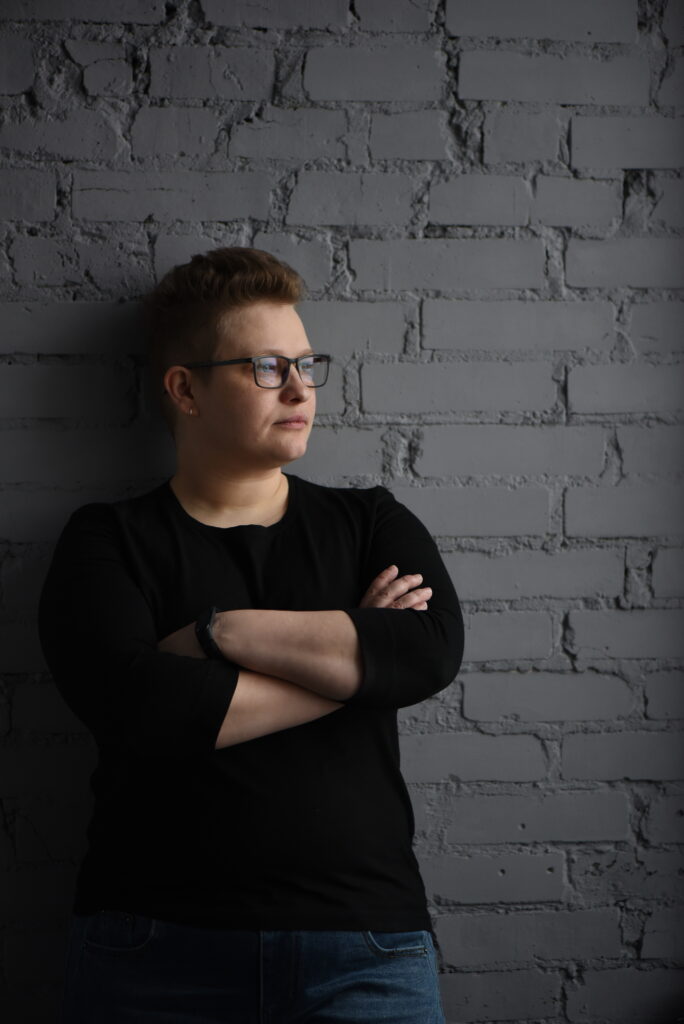
Some Russian soldiers’ mothers do love the war, of course. It is an irony of this conflict — of any conflict — that the female relatives of perished soldiers often hold the most ardent pro-war positions. According to Vezhevatova, many of these mothers have been raised on the mythology of World War II — Russia’s “Great Patriotic War” — wherein the mother of a soldier is a heroic figure. “The situation is complicated by deep psychological mechanisms at play,” says Vezhevatova. “It is hard to accept that a loved one perished for no reason.”
A small minority of military mothers has spoken out more strongly. In November, FAR worked with a group of mobilized soldiers’ mothers to publish an open letter signed by 390 persons demanding an end to the conflict in Ukraine, the withdrawal of all Russian troops from its territory and the redirection of military funds toward family welfare programs.
In response to the range of activity by soldier’s mothers, in November of 2022 Putin met with a group called the Council of the Wives and Mothers of Russian Servicemen. Nobody had ever heard of the group before it was invited to the Kremlin, and for good reason. “The women were carefully selected,” says Vezhevatova. “Many of them were government employees or affiliated with Russian officials and pro-war movements.”
“The situation is complicated by deep psychological mechanisms at play,” says Vezhevatova. “It is hard to accept that a loved one perished for no reason.”
Russian politics and media, meanwhile, are full of prominent female war hawks. The iconic cosmonaut and Duma member Valentina Tereshkova voted in favor of the Russian invasion of Ukraine. The Russian Senate speaker Valentina Matvienko also takes a strong pro-war stance. Some of the most notorious Kremlin propagandists on Russian television are women.
Then there is Maria Arbatova, a writer and one of the most prominent Russian feminists of the 1990s. She supports the official Russian narrative about the war and has harsh words for war emigrants. “No one will take away my disgust for those who fled Russia today and grunt about their success on social networks,” she writes.
Arbatova maintains that she is still feminist, and sees no inconsistency in fighting against gender inequality and sexual violence while also supporting the war in Ukraine and the Kremlin’s crackdown of anti-war feminists.
“It is relatively safe to be a feminist in Russia if you close your eyes to the military aggression,” remarks Basmanova. “But if military aggression is the ultimate form of patriarchy, how can we overlook it?”
Your support is crucial...As we navigate an uncertain 2025, with a new administration questioning press freedoms, the risks are clear: our ability to report freely is under threat.
Your tax-deductible donation enables us to dig deeper, delivering fearless investigative reporting and analysis that exposes the reality beneath the headlines — without compromise.
Now is the time to take action. Stand with our courageous journalists. Donate today to protect a free press, uphold democracy and uncover the stories that need to be told.
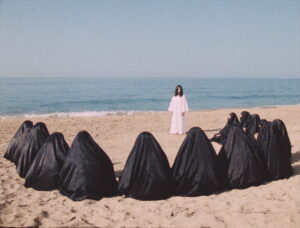



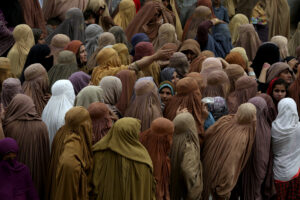

(My previous post was INCORRECTLY TRANSCRIBED by the Truthdig comments administration.) I am a feminist. BUT I am NOT a pacifist. The US and NATO gave the Russian Federation NO OPTION but to undertake the special military option. Pacifists -- in Russia and the US -- are PROLONGING the war, by condemning the Russian Federation for defending itself against pre-war, escalating NATO threats. Russia was absolutely justified in taking military action (1) to defend the...
(My previous post was INCORRECTLY TRANSCRIBED by the Truthdig comments administration.) I am a feminist. BUT I am NOT a pacifist. The US and NATO gave the Russian Federation NO OPTION but to undertake the special military option. Pacifists -- in Russia and the US -- are PROLONGING the war, by condemning the Russian Federation for defending itself against pre-war, escalating NATO threats. Russia was absolutely justified in taking military action (1) to defend the people of the Donbas (2) to demilitarize Ukraine and (3) to de-Nazify the Ukrainian military AND the Banderite regime in Kiev. The longer we deny the truth, the less chance there is of resolving this devastating conflict.
I am a feminist. BUT I am NOT a pacifist. The US and NATO gave the Russian Federation NO OPTION but to undertake the special military option. Pacifists -- in Russia and the US -- are PROLONGING the war, by condemning the Russian Federation for defending itself against pre-war, escalating NATO threats. Russia was absolutely justified in taking military action (1) to defend the people of the Donbas (2) to demilitarize Ukraine and (3) to...
I am a feminist. BUT I am NOT a pacifist. The US and NATO gave the Russian Federation NO OPTION but to undertake the special military option. Pacifists -- in Russia and the US -- are PROLONGING the war, by condemning the Russian Federation for defending itself against pre-war, escalating NATO threats. Russia was absolutely justified in taking military action (1) to defend the people of the Donbas (2) to demilitarize Ukraine and (3) to de-Nazify the Ukrainian military and the Banderite regime in Kiev. The longer we deny the truth, the less chance there is of resolving this devastating conflict.
Those pro Western feminists have zero of my support.
True Soviet (a lot of them where Russians) feminists were killing Nazis in big numbers in WW2 but this ones will sell their own country to NATO nazis in a heartbeat.
I hope you see the difference.
This appears to be a well-meant but misguided piece; Scott Ritter explains why on his Substack:
https://open.substack.com/pub/scottritter/p/finally-the-bull-charged?r=16d9h&utm_medium=ios&utm_campaign=postbe
It's unclear to to me whether the administrators of this Comments section are neo-con saboteurs or simply incompetent. They have butchered my first posted comment, and they have butchered my attempt to correct their first blunders. Is this a backdoor way of appealing for funds to hire a more professional staff?